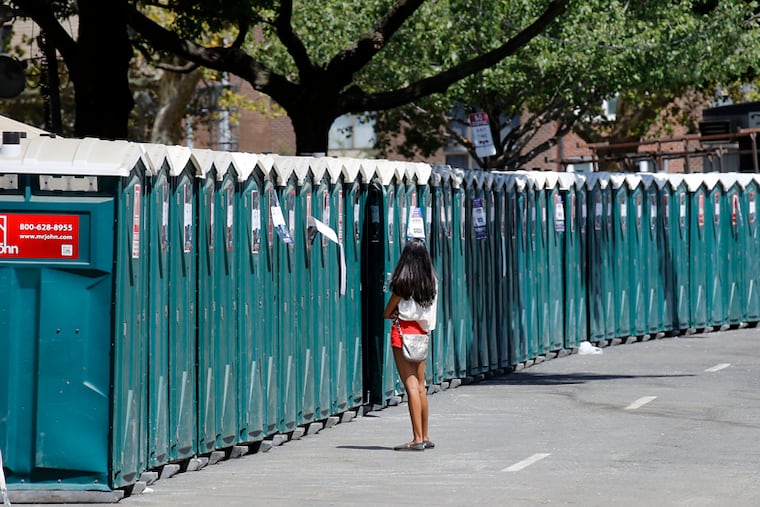Philly could finally get public bathrooms. Are we ready for them? | Editorial
The city is planning this fall to pilot the Portland Loo, a public bathroom system designed to be easy to keep clean and maintain.

A public bathroom in Philadelphia can be a relief — if you can find one.
While a few options exist in Center City, Philadelphians can far too often find themselves stuck without a place to go.
In Center City, a business and cultural district that sees 300,000 visitors per day, that’s unacceptable, and the situation gets even more dire once you head to other parts of Philly. Most Philadelphia neighborhoods are public restroom deserts. The problem has worsened over the last two years, as more retailers have closed amid the pandemic. Now, many Philadelphians, especially our most vulnerable residents, are increasingly left without access to a basic human right: a safe, private bathroom.
But good news could be on the way. Philadelphia’s Managing Director’s Office hopes that this fall the city can pilot the Portland Loo, a public bathroom system designed to be easy to clean and maintain. Beyond the company’s home base in Portland, Ore., the loos have been installed in cities around the world, including Galveston, Texas, and Montreal. The loo presents a major upgrade, including not just a toilet and handwashing facility, but a diaper-changing table, feminine hygiene products, a disposal box for sharp items, Narcan, and other health products as well. The bathrooms will also be large enough to accommodate a stroller or bicycle.
Philly’s initial installation is planned for 15th and Arch Streets, where the city currently has portable bathrooms. An exact date is pending because the loos are currently on back order.
» READ MORE: The best bathrooms in Philadelphia you can use without paying for anything.
If the Kenney administration’s pilot is successful, the city hopes to add more loos in other areas of the city next year.
However, not everyone is on board with adding public restrooms. Opponents caution that the addition may not improve public cleanliness, could make bathroom activity that should be private even more visible, and will require consistent cleaning and maintenance — something the city already struggles with. The city is soliciting feedback from residents and businesses and has circulated an online survey. Past attempts to provide public restrooms in Center City have flopped, in large part due to historic opposition by Center City District CEO Paul Levy and neighbors’ associations.
Philly, like many other big cities, often struggles to manage the friction between new ideas and concerns from long-time residents. But if Philadelphia is to successfully tackle long-standing issues such as public cleanliness, trash, and drug use, testing proven solutions — including public restrooms — must be part of the process.
While we wait for the loo to launch, the city should provide more details of its plan to maintain the public toilets and how it will measure the success of the initial test. Administration officials say the city will clean the loos between three and five times a day, but is that enough? The easiest way to turn the public against the concept is to allow the loos to become a smelly eyesore.
A safe, private place to use the bathroom is something everyone deserves. The city has more work to do to ensure that this experiment is successful, but providing bathroom access is a step toward improving the lives of all Philadelphians.